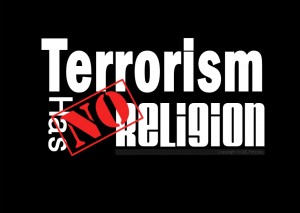I had just come out of an enriching and thought provoking discussion on whether religion is really violent in Saint Anthony’s College Oxford, delivered by the witty yet incredibly persuasive Karen Armstrong, when news of the deadly attacks in Paris swept across the media. Terrorism has no religion Armstrong had said, espousing that it was perhaps just as difficult to define the term terrorism, as it was to define religion. And notwithstanding these difficulties of what these terms actually mean, it is becoming increasingly clear that the motives of terrorism are predominantly political. Unsurprisingly, we heard the Paris attackers shouting how France should not have gone into Syria, as they besieged hundreds of innocent Parisians through indiscriminate firing.
What these latest terrorist attacks confirm is that terrorism has in fact bred a new form of perverse neo-religious dogmatism, one that inverts Divinity on its head in so far as it challenges the core human values common to all faiths and denominations. If we are to even conceive of winning this so-called war against terrorism, we need to widely promote and practice non-partisan scholarship and journalism that rejects the preaching of a hateful and intolerant worldview that makes a travesty of the celebration of diversity and plurality shared not just by religious scriptures but also the values of human dignity and civic virtue common to humanity. As I mourn and makes sense of Paris, for me it begs the question whether it is the Jeffrey Taylors, Pamela Gellers and Geert Wilders of the world on the one hand – and radical Islamist groups such as Isis and Boko Haram and extremist Muslim fatwa-givers on the other – that are left to effectively shape the contours of the ideological landscape of our world today? To embrace such a polarised worldview would be to submit to the grotesque caricatures of ideology constructed by such fundamentalists on both sides of the spectrum. To be sure, an increasingly insular journalism is paving the way towards a civilisational divide. It is time for responsible journalism to take the mantle of promoting peoples’ freedom of expression.
Virtues and goals common to humanity are not dead – they are alive at the grassroots where diverse communities and cultures come together in peace and harmony and yearn to grow and thrive. They are alive when I as a Muslim woman can live peacefully in an English village and befriend Christians, Jews and Buddhists alike from my neighbouring community. They are alive when we knock at each other’s doors over Christmas, Hanukah and Eid (the Muslim spiritual festival) to exchange gifts. They are alive when we come together from all denominations in philanthropic pursuits and stand together in condemning extremism. They are alive when we queue up to donate blood regardless of creed, colour, cast or religion. They are alive when we join hands to partake in interfaith dialogues and community building initiatives. Yet, the unfailing resolve of ideological extremists on both sides of the spectrum continues to construct their ugly caricatures of ideology, undermining these shared notions of human dignity and civic virtue, effectively disenfranchising the unheard majority and paving the way to the creation of an increasingly polarised world.


I always was interested in this subject and still am, appreciate it for putting up.